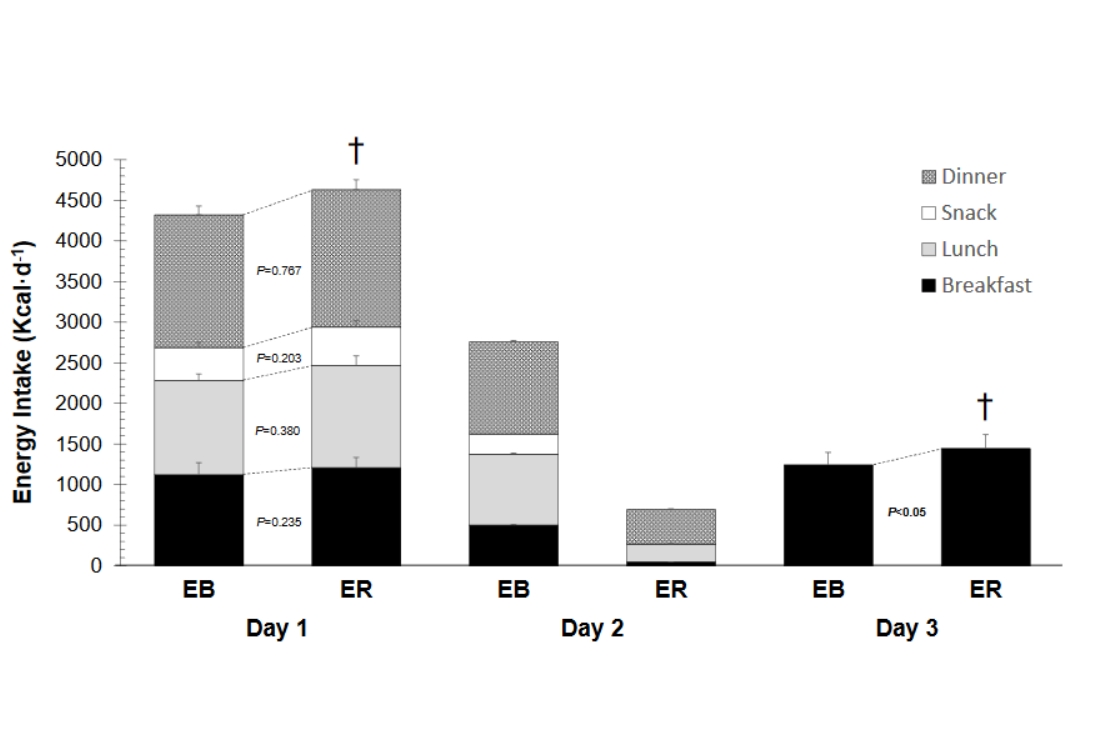Anticipation of 24 h severe energy restriction increases energy intake and reduces physical activity energy expenditure in the prior 24 h, in healthy males
Ryan James Appetite Volume 152, 1 September 2020, 104719
Intermittent fasting involves alternating between severely restricted and unrestricted energy intake. Physical activity energy expenditure (PAEE) is reduced during, and energy intake is elevated after, a period of energy restriction, but whether these are altered in anticipation of energy restriction is unknown. The aim of this study was to assess energy intake and PAEE in the 24 h before severe energy restriction. In randomised, counterbalanced order, 14 healthy males completed two 48 h trials over 3 days. On day 1, participants were informed which diet they would receive on day 2; either an energy balanced diet providing 100% (2755 (159) kcal; EB) or an energy restricted diet providing 25% (691 (42) kcal; ER), of their estimated energy requirements. Throughout day 1, ad-libitum energy intake was then determined from researcher-provided breakfast (08:30–09:00), lunch (12:30–13:00), afternoon snacks (14:00–18:00) and dinner (19:30–20:00). On day 2, participants consumed their allocated diet as instructed. On day 3, ad-libitum energy intake was assessed at breakfast (08:30–09:00). PAEE was measured throughout via integrated heart-rate and accelerometry monitors.
Energy intake was 6% greater on day 1 (260 (344) kcal; P < 0.05) and 14% greater at breakfast on day 3 (223 (59) kcal; P < 0.05) during ER compared to EB. PAEE was 156 (252) kcal lower on day 1 (P < 0.05) and 239 (391) lower on day 2 (P < 0.05) during ER compared to EB. These behavioural compensations meant that the energy deficit produced by 24 h severe energy restriction was attenuated by 1108 (415) kcal (46%) over the study period (P < 0.0001).
These results suggest that compensatory changes in energy intake and PAEE occur before, during and after an acute 24 h period of severe energy restriction, likely lessening the energy deficit created.














